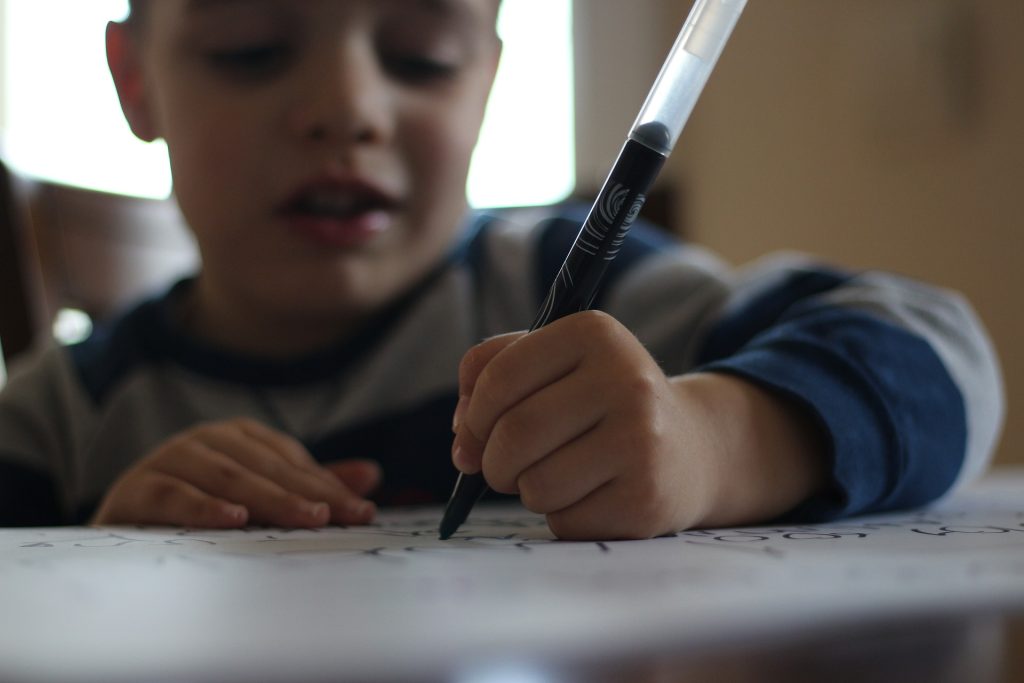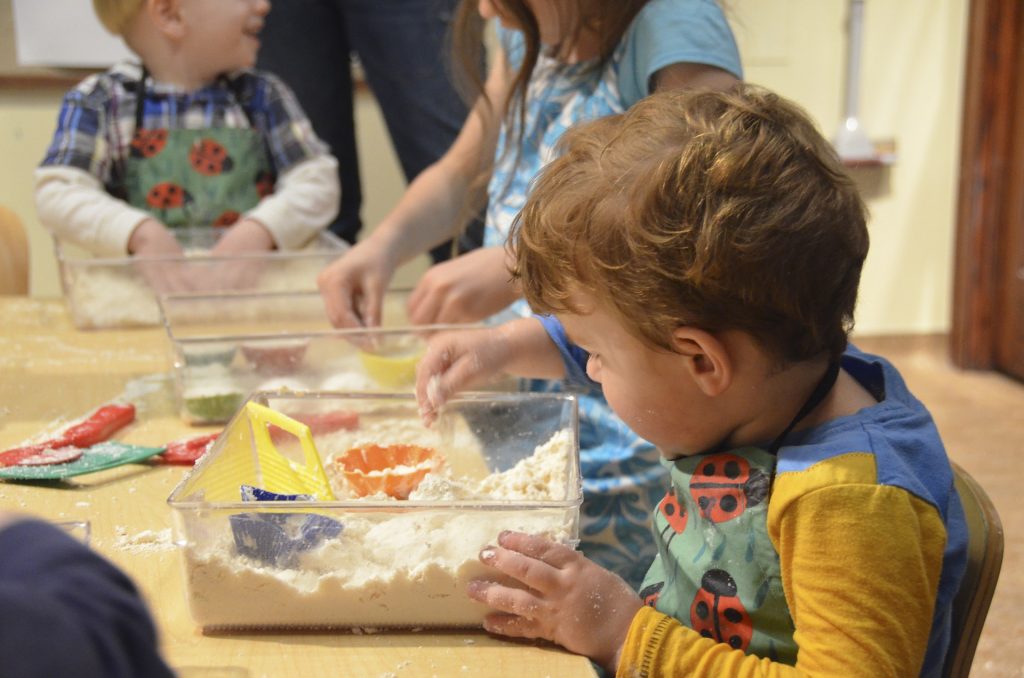Many parents/carers are starting to evaluate the effects of the pandemic on their pre-schoolers. With the lack of preschool/nursery experience setting them up for the school, this is turning into one of the largest concerns for parents of pre-schoolers.
Children have also had limited contact with their extended families, causing concerns for children’s social communication skills and ability to get on with larger groups of children and less familiar adults.
It is true that preschools/nurseries can help gear children up ready for the start of school if only getting used to spending time away from the family home and communicating with those other than their families.
Common concerns:
- Should my child be able to write their name?
- Should my child be fully toilet trained?
- Should my child be able to communicate confidently with unfamiliar adults?
- Should my child be able to sit and concentrate?
- Should my child recognise letters/sounds of the alphabet?
- Should my child be able to play nicely and share with other children?
Reports of poor concentration, testing behaviour, shyness and not wanting to go to activities outside of the home, lack of social skills, difficulties with turn taking and waiting, limited abilities to hold a pencil, recognise letter sounds, all cause parents’ sleepless nights of worry.

How can I help my child to be ready for school?
Firstly, stop putting too much pressure on yourself and subsequently your child. We have all just lived through the most uncertain and unusual times of our lives and of course sadly we still continue to.
School teaching staff are more than aware that the pre-schoolers they will welcome to school this September, will have had a very different experience to many children in prior years starting school.
Here’s what you can do:
Speech sounds and hearing:
If you feel your child’s speech is difficult to follow, ensure that their hearing has been checked. Common signs of poor hearing are, sitting too close to the TV, having the TV up very loud, not turning when you call their name, speaking loudly themselves, missing environmental sounds, such as keys being picked up to indicate you’re going out, missing hissy sounds out of their speech such as ‘s’ and ‘k’ instead replacing them with sounds such as ‘d’ and ‘g’ – so sea to ‘dea’ and car is ‘dar’ or gar’. A request via your Health Visitor or GP to have their hearing checked could be a good solution to put your mind at rest. Many children experience glue ear and miss out in hearing sounds produced by their care givers, when learning speech sounds, going on to storing and using those sounds incorrectly.
If your child is 4yrs+ and has a good number of sounds produced incorrectly in their speech it would be good to have an assessment by a Speech and Language Therapist to ensure that the sounds they should have by 4yrs old are in place and the ones remaining are ok to be monitored. Many sounds such as ‘ch’ ‘r’ and clusters of consonants ‘tr’ ‘br’ ‘spl’ will still be developing up until the age of 6/7 years even. So, your child’s speech doesn’t need to sound perfect by 4yrs, but they should ideally be able to communicate their daily needs reasonably clearly.
You can refer your child directly to the NHS Speech and Language Therapy department you don’t need to go through your GP. Search NHS Speech and Language Therapy department and your location on Google, to find you local department. If waiting lists feel too long, you can also approach a Private Speech and Language Therapy Service to arrange an assessment. www.asltip.co.uk is a good place to source a private speech therapy assessment.
Language – understanding instructions and communicating their needs
Understanding instructions
If you feel your child is having difficulties understanding instructions, you can do a few simple things to test their levels.
Start by giving your child some single key word instructions. ‘X can you bring my KEYS’, ‘X can you find your BALL’,
You can then try two key word instructions ‘X can you find MUMMYS KEYS (not Daddy’s), ‘X can you bring the RED BALL’.
Try three key word level, ‘X can you put the RED BALL UNDER the table. This level can be more complicated for parents to test, as you need to understand that the child must have a certain choice of items to make the word level test accurate. So, in the above case, a red and blue ball. A red and blue teddy, on and under the table. This enables 3 KEY WORDS to be truly tested, to check they are able to understand 3 important words in the sentence.
Signs you might spot that your child is not understanding as well as they should be;
- Brings you the wrong things that you’ve asked them to get
- Can’t seem to hold onto the information in their head
- Brings something with a similar sound e.g. box not ball, or brings something with a different detail; red ball not the blue ball you asked for.
- Distractible when going to get something and gets side tracked in doing something else
Communicating their needs:
A child needs to be able to understand language before they can start to communicate what they know to others. As children build up their bank of words (often referred to as their vocabulary) they will then start joining words together to express more complex ideas.
Checking your child’s bank of words (vocabulary) is growing is a good starting point as a rule of thumb, children at 1yrs should understand approximately 100 single words or short phrases. At 2 years they should understand 200 words and start putting two words together. Their bank of words continues to grow.
Help your child by doing lots of naming of everyday items around the house – milk, sink, ball, dog etc. Then start to expand upon the details you use, brown dog, big ball, warm milk etc.
The more children need to communicate their needs to you the better communicator they will become, so try to give them choices to help them express themselves; ‘Do you want big ball or little ball?’ Warm milk or cold milk?’. If you find your child reaches or points but fails to use the words, give them a lead in sentence ‘Nathan wants…… ‘ Nathan wants warm milk or cold milk’ ‘Nathan wants…..’ Leaving gaps for children to fill in the sentence can get children talking and making their needs known to us. Try as hard as possible to give choices and not pre-empt their every need. A child needs a reason to communicate whether that be they are hungry, thirsty, dirty, wants to play, sleepy, let them express themselves.
It’s very typical that children can become shy with new people. Care givers in nursery, preschool, child minders are trained to help children find their voice and confidence.
Pre-schoolers in the pandemic may not have had much need or experience to communicate their needs to others. This will need gentle scaffolding and support. Try some of the choice making ideas with them now that you are venturing out again. A choice of drink when out, a choice of which animal to stroke at the farm, if possible, start to include communicating their choice to others.
Children do thrive on routine and many reception classes will use little visual timetables and now and next boards to help your child understand what is happening next in their day, they will also give children the chance to express their wants and needs through little pictures along side their speech. You could try using some of these little visual prompts at home, drawing out a simple picture with the written word, with what you’re going to be doing first and then next and encouraging them to remind you of the order of events. First, we are going to the shop and next the park.
If you do feel your child isn’t expressing their needs clearly and is becoming frustrated when they can’t make others understand their needs, you can refer your child directly to the NHS Speech and Language Therapy department you don’t need to go through your GP. Search NHS Speech and Language Therapy department and your location on Google, to find your local department. If waiting lists feel too long, you can also approach a Private Speech and Language Therapy Service to arrange an assessment. www.asltip.co.uk is a good place to source a private speech therapy assessment.
Literacy and writing:
Parents/Carers have always worried that their child is not ready for formal learning, as they have no interest in holding a pencil, no interest in reading a word or remembering the alphabet or their numbers. Reception teachers are fully expecting to take your child on this journey alongside the rest of the class so do not worry.
Mark making should be fun, they don’t need to be able to colour neatly before starting school or even write their name. Having fun with mark making, making patterns in sand or mud, threading, stamping, mark making, finger painting, are all relevant skills to help children along the way.
The same in terms of knowing all their letter sounds. It is more important that children can develop their ‘phonological awareness’ which means recognising animal sounds, sounds that transport makes, or sounds around the house like a doorbell and tell those sounds apart. Having fun with sound lotto’s and being sure your child can tell sounds apart is a sufficient start to learning more abut phonics. There are plenty of motivating tv programmes, books and audios to help your children have fun with early phonics, however every child at school will be starting at the beginning of their phonics journey, so just keep their pre school experience of phonics fun.
Self-care and independence:
Toileting, dressing and self-care routines are another huge concern for parents/carers when thinking about school readiness. It is fully expected that children starting school this September, will have toilet training delays, due to not needing to leave the house often. Not having to communicate toileting needs to a less familiar adult. You can help your child’s toileting journey IF they are showing the signs of being ready. If they haven’t been ready it might be that the journey will be jointly managed with school staff.
Please do not worry about the child being dry at night at the same time as being dry in the day. Night time toilet training will always been later than being dry in the day.
You can help your child on their self-care journey by having familiar routines and cues and to share these with teaching staff. Sending them to the toilet at frequent times across the day. Washing hands before meals, wiping their own face after meals, encouraging them to put on one item of clothing which they can manage in the mornings and increasing the items as they experience success.
Help your child by buying Velcro fastening shoes and shirts when they start school, clothes which are comfortable and easy to wear, to go to toilet in quickly and to change post PE when needed. Also remember that most children now go to school in their PE kit on PE days.
If you really feel your child self-help skills are delayed, you can refer yourself to the children’s NHS occupational therapy team, by again looking on Google for the services in your area. There are also Private Occupational Therapists who can assess your child’s fine motor, gross motor and sensory processing needs.
Behaviour and sensory needs:
Many parents/carers will be most worried about their child’s behaviour and how they might behave at school. Firstly, it’s important to understand that school offers and very structured and predictable routine for children which is the reason that many parents report that the child behaves beautifully at school. Also, often children will behave the worst for their parents/carers as they are safe to let those behaviours be seen having conformed to the demands of their environment throughout the day. Many children post pandemic will experience sensory overwhelm. Their world has opened up again they are interacting with a wider range of people and environments, and this will take its toll on our children’s sensory system and ability to process it all.
- Give your child plenty of downtime when they get home from school.
- Try to avoid asking lots of questions about their day
- Greet them with a snack – some chewy, high flavour, crunchy are all good choices as they help to calm and focus the sensory system
- If you have siblings, give them some space apart, encourage them not to talk so much about what’s happening at school and if they do create turn taking to give each other the time and space to talk.
- Learn to recognise what your child seems to need, is it quiet space, is it some time out time, Is it high energy bouncing on the trampoline, is it time to eat, some even need their meal sooner after school to refuel the system.
- Ensure you don’t overwhelm your child with lots of after school clubs and play dates, some are better to be on the go, but others can crash.

Continue to work on:
- Turn taking – so your child becomes good at waiting and taking their turn in a group
- Talking through regularly what makes a good friend, being kind, being honest
- Encouraging your child to use their words to express their needs when they are able
- Helping you child know that its ok to take time out and ask a teacher for some time to sit quietly
- Encouraging the teacher to check In with your child during the day if you know something has been bothering them.
- Talk to your child about their day when you can be one to one and at a peaceful time, once they have had time to switch off from their day and recharge.
Remember all children will have experienced a quite different pathway as pre schoolers during the pandemic. Schools are preparing for this ensuring that there are play based curriculum opportunities, extra help with self-care and support is in place for developing communication skills and positive behaviour. Talk to your child’s school if anything particular concerns you. You will usually expect to have feedback via an app such as Seesaw or through a home school diary to share how they are settling. Don’t be afraid to share updates from home and ask to share tips/strategies between home and school to work on areas that are tricky for your child.
But mainly grab that first peaceful cup of tea when they start school and know they are in the safe hands of staff that care for your child and their well being and who are there to help them thrive.
If you need some help, why not contact one of our speech and language therapists, whose details you can find here. Or you can use some of our online resources which you can find here.










